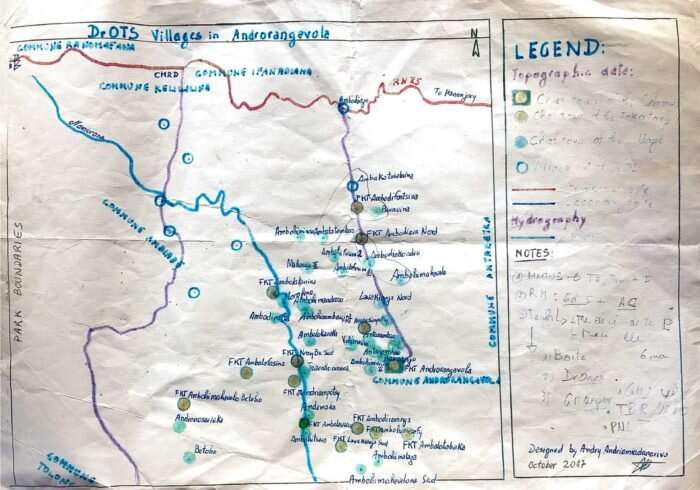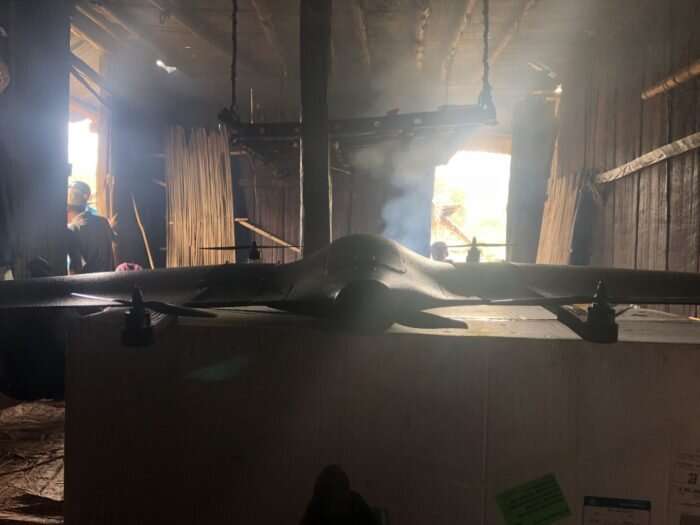Drones support remote village medical treatment

An international team of health-care investigators is piloting a new medical-delivery system that uses a "surgical strike" approach to solve pandemic problems.
Researchers from Western, Institut Pasteur de Madagascar, Stony Brook University (New York), and the Swiss Tropical and Public Health Institute have led the first global test to the use drone technology to support tuberculosis (TB) diagnosis and treatment in remote Madagascar.
With funding from Stop TB partnership, Bill & Melinda Gates Foundation, and the Government of Canada, the team spent much of the last two years testing the capacity of drones to pick up patient samples from more than 50 villages for delivery to medical facilities to be tested. Medication is then flown back for patients who test positive, again using drone technology.
A customized "pill box" delivers personalized medicine, which is digitally monitored to ensure prescriptions are properly followed.
This methodology holds the potential to leapfrog the extreme infrastructure challenges prevalent in remote places like the Vatovavy-Fitovinany region of Madagascar.
"In just a few hours, the drone makes a trip that is logistically and economically extremely difficult for many villagers, especially if they are sick," explained Health Studies professor Elysée Nouvet, a medical anthropologist, who previously led global health projects in developing countries in Central America and West Africa.
"These are villages that are walk-in only, with no ambulance service. Travelling to the nearest hospital from a remote part of Madagascar can take days, and, if an individual is sick and those accompanying them have no family near the hospital, this trip can incur significant expense."
Nouvet was invited to lead the cultural acceptability study of this potentially game-changing TB diagnosis and treatment program. The protocol for this cultural acceptability study is outlined in the British Medical Journal.
Part of a global movement towards digital-health technology, remote monitoring and disease surveillance, Nouvet believes this approach must be further explored to figure out how best to properly navigate customs and any potential concerns of those living in remote communities.
There is also the question of sustainability and control over the technologies: Can such global programs be scaled up and owned at the local level?

"There are many pieces to this puzzle being figured out even as new drone-supported health programs are being introduced around the world," Nouvet said. "Who knows? Maybe drone-delivered tests and treatments will become a new standard for northern First Nations, Métis and Inuit communities in Canada. The job of the anthropologist in all this is to ensure technological optimism does not cloud questions that need to be asked about the social impact and acceptability of new technologies on those they are designed to supposedly support."
More information: Elysée Nouvet et al. Perceptions of drones, digital adherence monitoring technologies and educational videos for tuberculosis control in remote Madagascar: a mixed-method study protocol, BMJ Open (2019). DOI: 10.1136/bmjopen-2018-028073


















